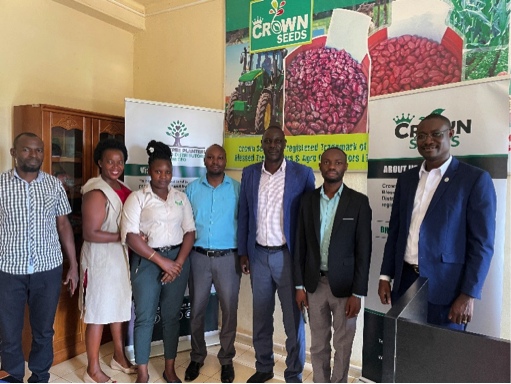 Read this article in French
Read this article in French- Share this article
- Subscribe to our newsletter
The missing middle – a gap in financing for small and medium agri-enterprises
In East Africa, although agriculture employs 65 per cent of the people and provides 25 per cent of the GDP, the sector receives only five per cent of the commercial loans. Loans provided by lenders in the agricultural sector are considered to be particularly risky and costly to serve, and the conditions to be fulfilled by creditors often prohibitive. This is especially true for small and medium enterprises working in the agricultural sector (agri-SMEs), for which obtaining loans of an amount between USD 50,000 and USD 500,000 is particularly challenging. The financial envelopes are both too big for microcredits, and too small for traditional or development banks.
On the other hand, there would be a huge potential for development if the agri-SMEs had have access to steady credit flows. It is estimated that in Sub-Saharan Africa alone, there is a USD 65 billion loan gap for the agricultural sector.
ACELI Africa – catalysing finance for credit-constrained East African agri-businesses
Aceli Africa (= “Aceli”) is an innovative market incentive facility designed to make agri-SMEs more attractive and less risky, while aligning lenders’ portfolios with development goals. Launched in 2020, Aceli aims to bridge the gap between capital supply and demand, to unlock the growth and impact potential of SMEs in the agriculture sector.
The approach builds on successful experiences in Latin America, and intends to replicate them in a first step in Uganda, Rwanda, Tanzania and Kenya. An extension to other African countries is planned, in case the approach is conclusive and successful.
Aceli facilitates credit flows from selected lenders (banks, non-banks, impact funds, foundations, etc.) towards agri-SMEs. Potential lenders need to commit to Aceli’s principles and adhere among others to the benchmarking process (transparency). Aceli then provides financial incentives for the vouched lenders to reduce the risks, by covering the first-loss, and by providing additional financial incentives such as origination bonuses (to encourage reaching out to the most remote areas or more informal SMEs) and special impact bonuses for investments, which are particularly gender and youth-inclusive, respect the environment and are climate smart.
Through additional technical assistance, lenders and agri-SMEs receive tailor-made support. Finally, Aceli also works at informing policy- and decision-makers, and advocates for this successful and innovative approach towards the governments, the Central Banks as well as to international financial institutes such as the World Bank (WB), the African Development Bank (AfDB), and the International Fund for Agricultural Development (IFAD).
After less than two years of operation, Aceli Africa is proving to be very successful, and collaborates with over 20 lenders in the four countries, providing together a total amount of 396 loans to agri-SMEs. The average loan size so far is of USD 136,000, for a total amount of loans given of USD 53 million.
Besides financial support from the Global Programme Food Security of the Swiss Agency for Development and Cooperation (SDC) with an amount of USD 10 million (2020-2025), Aceli is funded by the following major donors: USAID (USD 10 million), IKEA Foundation (USD 10 million), UK-FCDO (USD 15 million), Dutch ministry of Foreign Affairs (USD12 million). It is expected that through the grant provided by the donors of around USD 70 million for the project period of 2020-2025, Aceli Africa will trigger a total amount USD 700 million in credits for agri-SME’s from lenders in the four above mentioned countries.
Author: Daniel Valanghi, Swiss Development Cooperation (SDC-GPFS), Bern, Switzerland e-mail: daniel.valenghi@eda.admin.ch
More information:





Add a comment
Be the First to Comment